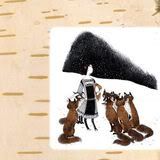What Amazon Misses with Its Recommendations
As a bookseller, one of the best methods for recommending a book to someone is to ask him what he last read that he really liked, then recommend something similar. This strategy works much of the time, as it isn't that hard to say "Oh, you liked Fight Club. Have you read The Subject Steve?" Where this tactic falls short is that it reduces a person to a measure of his tastes along one axis - literature - and with no real analysis of why the reader liked the first book in question. Maybe it was the language of Fight Club that turned him on. Maybe it was the thematic matter. Maybe it was the plot. A good bookseller will try to determine why the reader liked the book, then find a book that fits roughly the same bill.
But a person is much more than a composite of his literary tastes, isn't he? This is something that's always frustrated me about Amazon's "Customers who bought this item also bought..." feature. It should be cooler than it is. Invariably, if I enter something like Fight Club, for instance, Amazon lets me know that customers who bought Fight Club also bought...a whole bunch of other Chuck Palahniuk books. And then, if I dig deep enough, some well-known books by other authors, like A Clockwork Orange and American Psycho (clearly, Amazon has homed in on the violence in Fight Club and decided that that is what I like, or rather, that the others who have bought Fight Club were looking for similarly violent books about societal decay). In short, it gives me a list of books. Wouldn't it be interesting to know what music or movies (other than the film version of Fight Club people who bought Fight Club bought? I think it would.
Certain novels or stories evoke albums in my mind, almost immediately, and the reverse is also true. It isn't the case with every book; I'm not sure exactly what album Underworld by Don DeLillo conjures up (although it wouldn't be something by Underworld, I don't think). But some things spring right to mind. Wouldn't it be cool if there were some kind of machine that could tell us that if we like Nick Drake, The Battle of Algiers, "Weeds," and Wired Magazine, we'll love...whatever? I think it would. At the very least it would be fun to play around with. I thought I'd offer a few quick inter-media recommendations to see how they work. Most of the time, I think I'm just finding a common mood, or feeling. Feel free to add your own in the comments section:

 If you like Fox Confessor Brings the Flood, by Neko Case, you'll love The End of Vandalism, by Tom Drury. They both capture that prairie-in-winter, small-town-aimlessness. Both the album and the novel have that delicate mix of humor and sadness, of familiarity and otherworldliness, that's so difficult to properly execute. Case and Drury both write with a stunning, dazzling nonchalance that's difficult to describe.
If you like Fox Confessor Brings the Flood, by Neko Case, you'll love The End of Vandalism, by Tom Drury. They both capture that prairie-in-winter, small-town-aimlessness. Both the album and the novel have that delicate mix of humor and sadness, of familiarity and otherworldliness, that's so difficult to properly execute. Case and Drury both write with a stunning, dazzling nonchalance that's difficult to describe.If you like the song "In a Future Age," by Wilco, you'll love In the Heart of the Heart of the Country, by William H. Gass. It would've been easier to connect this book of long short stories with the first Loose Fur album, since Jeff Tweedy borrowed some of its prose for his lyrics, but for some reason, I've always felt that this song, older by several years than the Loose Fur stuff, captures more fully the quotidian wonderment that lurks in Gass' writing. I think it's the last stanza of the song that summons what I'm thinking of: "High above/The sea of cars/And barking dogs/In fenced in yards."
If you like Wes Anderson movies, you'll love Nine Stories, by JD Salinger. An easy one, I know, as both feature families of precocious kids, but what's interesting to me about this pairing is the difference in tone between the two. Anderson, to my eye, casts an ironic gaze on much of what happens in his movies, while Salinger plays it entirely straight. Or am I missing something? It's been years since I read the Salinger stories, so it's possible I'm forgetting their tone.
 If you like Anthony Bourdain, in all his print and televised glory, you'll love The Epicure's Lament, by Kate Christensen. Christensen's novel, about a man dying only because he refuses to quit smoking, is full of references to MFK Fisher, recipes for whipped up Shrimp Newburg, and tales of revelry involving cigarettes, whiskey, and women. If that doesn't sound Bourdainian, then I don't know what does.
If you like Anthony Bourdain, in all his print and televised glory, you'll love The Epicure's Lament, by Kate Christensen. Christensen's novel, about a man dying only because he refuses to quit smoking, is full of references to MFK Fisher, recipes for whipped up Shrimp Newburg, and tales of revelry involving cigarettes, whiskey, and women. If that doesn't sound Bourdainian, then I don't know what does.

0 Comments:
Post a Comment
<< Home